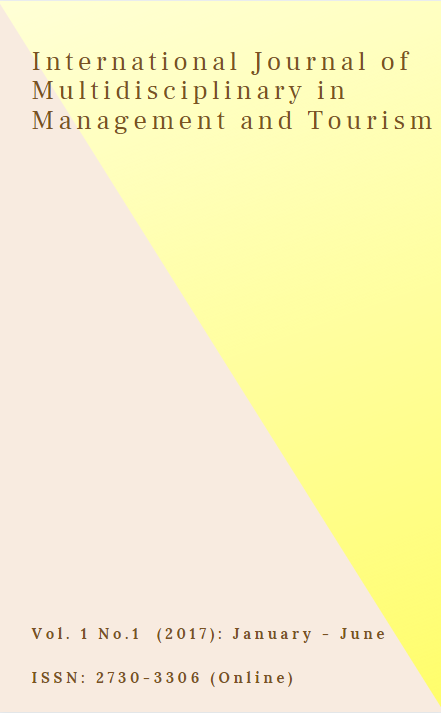Buddhist Path for World Peace: Hungarian Perspective
Main Article Content
Abstract
The Magga or path is always in a particular context. We may try to put it into auniversal perspective, nevertheless, it retains its unique character, or, a ‘space’ within the ever existing here and now. However, it is also leading from somewhere to a point still in a distance. Thus walking the Path is a process. Last year the topic of 1st MCU International Academic Conference was “Buddhism and World Crisis”; that may be taken as a point of departure. Our conference today gives a point we are all aiming at, i.e. world peace. While analyzing the subject it is striking for the author how far his understanding is influenced by his local, or, national background. Superficial knowledge about the Dhamma and the way how to practice it in Hungary is a new phenomenon, not older than around two hundred years. The institutional presence of Sangha has even a much shorter history, just about 60 years. The paper will interpret the consequences of it regarding the subject of the conference in that context.
Thus, in case we see the issue of world crisis and world peace that are both evidently part of the same saṁsāra (its endlessness and inevitableness are both well reflected in the suttas 3), we can assume it to be a futile exercise to find the a priori origin of it. The challenge is the determination of any possible and necessary actions today, here and now, for us, Buddhists, and for every sentient being on Earth who wish to reach the state of santi, i.e. peace, calmness and tranquility.
Article Details
References
Kovacs, J. (2008). Kornyezeti etika (Environmental ethics). Vilagossag. 2008/9-10.
Phramaha Somboon Vuddhikaro. (2014). Thai Scholars Interpretation of Socially Engaged Buddhism. http://gjn.mcu.ac.th/wp-content/uploads/2014/12/Thai-Scholars%E2%80 %99-Interpretation-of-Socially-Engaged-Buddhism.pdf.
Polanyi, M. (1958). Personal Knowledge: Towards a Post-Critical Philosophy. London: Routledge.
Polanyi, M. (1966). The Tacit Dimension. London: Routledge.
Sudhamma, N. (2012). A critical study of the concept of peace in Buddhist philosophy with Special Reference to Thich Nhat Hanh. India: University of Mysore.

